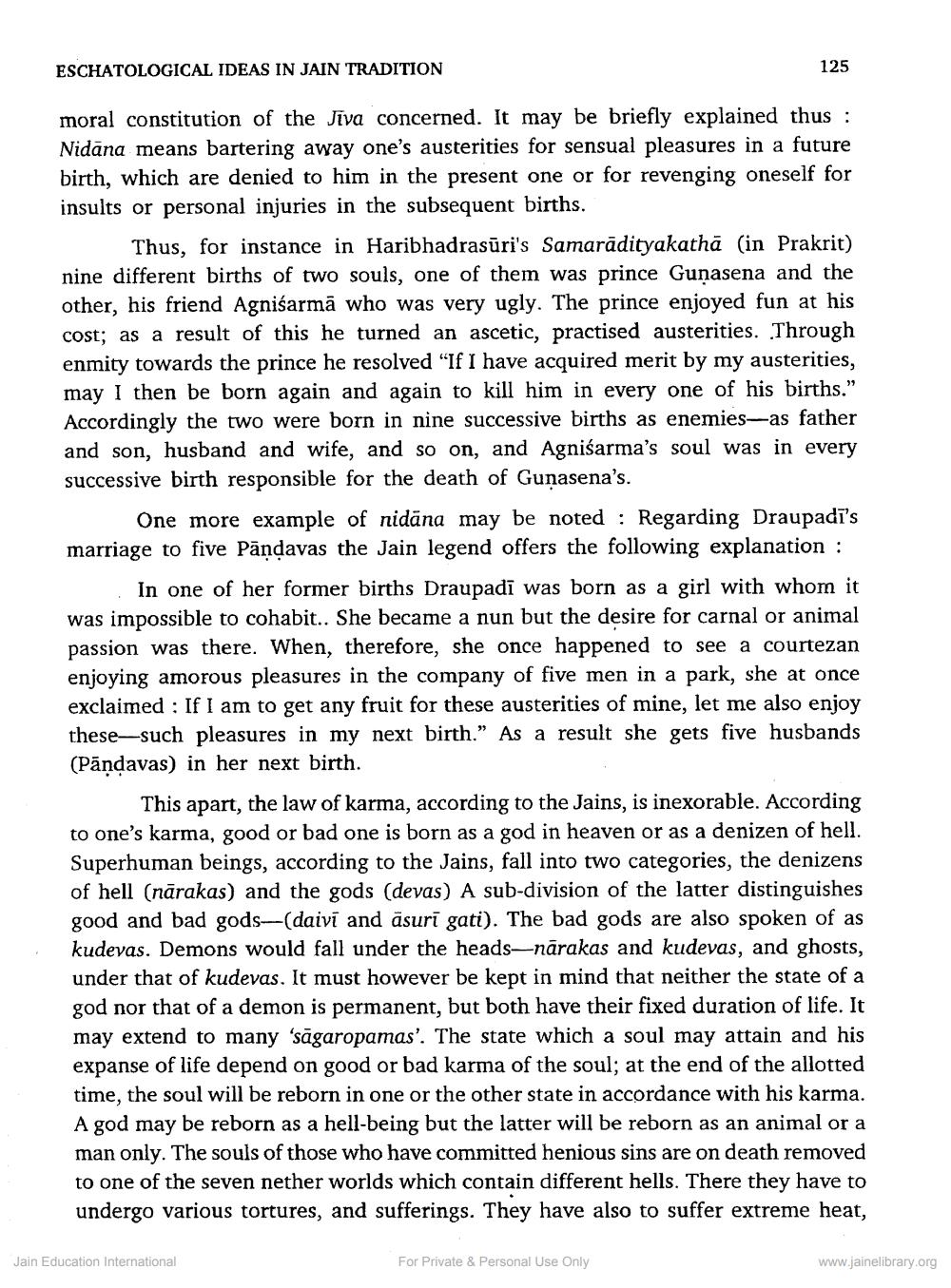________________ ESCHATOLOGICAL IDEAS IN JAIN TRADITION 125 moral constitution of the Jiva concerned. It may be briefly explained thus : Nidana means bartering away one's austerities for sensual pleasures in a future birth, which are denied to him in the present one or for revenging oneself for insults or personal injuries in the subsequent births. Thus, for instance in Haribhadrasuri's Samaradityakatha (in Prakrit) nine different births of two souls, one of them was prince Gunasena and the other, his friend Agnisarma who was very ugly. The prince enjoyed fun at his cost; as a result of this he turned an ascetic, practised austerities. Through enmity towards the prince he resolved "If I have acquired merit by my austerities, may I then be born again and again to kill him in every one of his births." Accordingly the two were born in nine successive births as enemies--as father and son, husband and wife, and so on, and Agnisarma's soul was in every successive birth responsible for the death of Gunasena's. One more example of nidana may be noted : Regarding Draupadi's marriage to five Pandavas the Jain legend offers the following explanation : In one of her former births Draupadi was born as a girl with whom it was impossible to cohabit.. She became a nun but the desire for carnal or animal passion was there. When, therefore, she once happened to see a courtezan enjoying amorous pleasures in the company of five men in a park, she at once exclaimed : If I am to get any fruit for these austerities of mine, let me also enjoy these-such pleasures in my next birth." As a result she gets five husbands (Pandavas) in her next birth. This apart, the law of karma, according to the Jains, is inexorable. According to one's karma, good or bad one is born as a god in heaven or as a denizen of hell. Superhuman beings, according to the Jains, fall into two categories, the denizens of hell (narakas) and the gods (devas) A sub-division of the latter distinguishes good and bad gods-(daivi and asuri gati). The bad gods are also spoken of as kudevas. Demons would fall under the heads--narakas and kudevas, and ghosts, under that of kudevas. It must however be kept in mind that neither the state of a god nor that of a demon is permanent, but both have their fixed duration of life. It may extend to many 'sagaropamas'. The state which a soul may attain and his expanse of life depend on good or bad karma of the soul; at the end of the allotted time, the soul will be reborn in one or the other state in accordance with his karma. A god may be reborn as a hell-being but the latter will be reborn as an animal or a man only. The souls of those who have committed henious sins are on death removed to one of the seven nether worlds which contain different hells. There they have to undergo various tortures, and sufferings. They have also to suffer extreme heat, Jain Education International For Private & Personal Use Only www.jainelibrary.org




